Coronavirus: 'I wore a disguise to see my twins in lockdown'
- Published
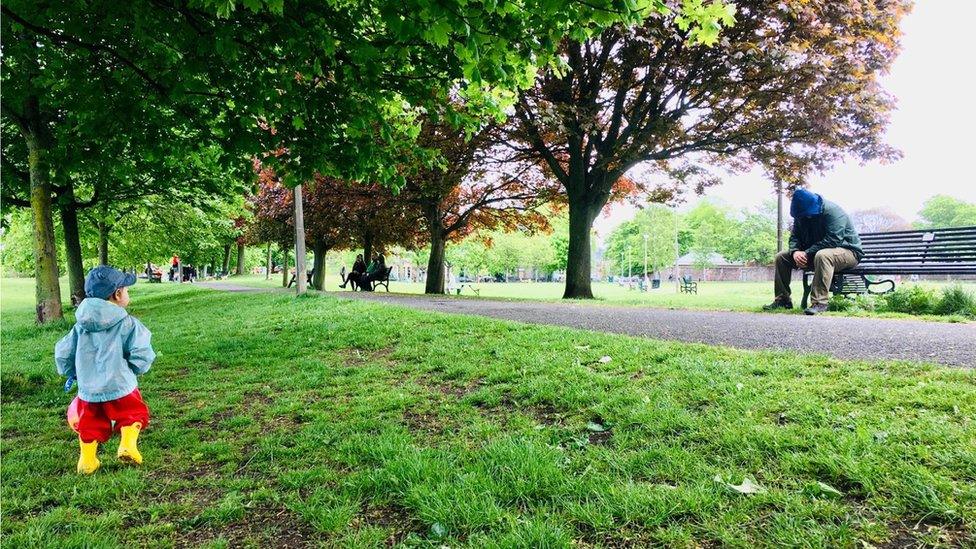
Eddie Flett wore a disguise so his children would not recognise him while he watched them in the park
An oil worker has told how he wore a disguise so he could watch his young children without them recognising him while he was in quarantine.
Eddie Flett, from Edinburgh, spent 14 days living in a flat in his street when he returned to Scotland after being stuck in Kazakhstan for 10 weeks.
He wore a mask and hood so his two-year-old twins would not recognise him and come too close.
His wife Erica Clinefelter said the enforced separation was "a nightmare".
She said: "I'd held it together for months until those last few days when I reached breaking point.
"Having him so close but not home was very hard."
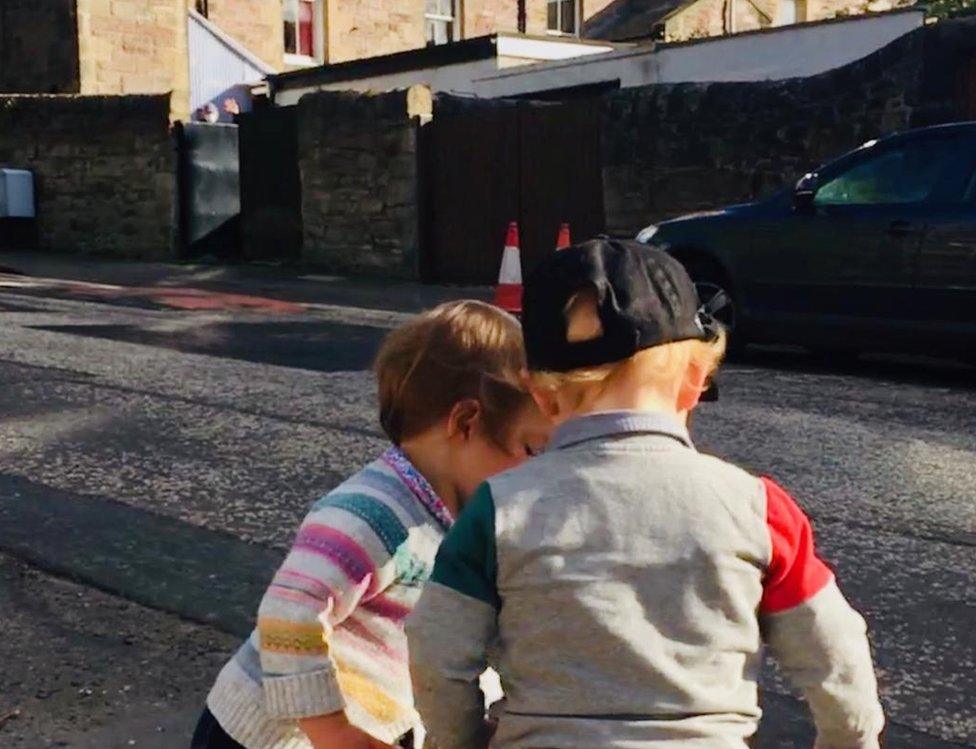
Erica would take her children to play in the street outside her husband's quarantine flat so he could see them from afar
Eddie, 51, told BBC Scotland: "The hardest part was being down the road.
"The proximity was painful. I would stand at the fence and watch them play outside."
He then started going to the park so he could watch his children Isobel and Campbell from a distance.
Erica, a former project manager, said: "We would arrange a time when we would be in the park and come to watch.
"He would wear a mask and a jumper with the hood up and he would sit on the bench."
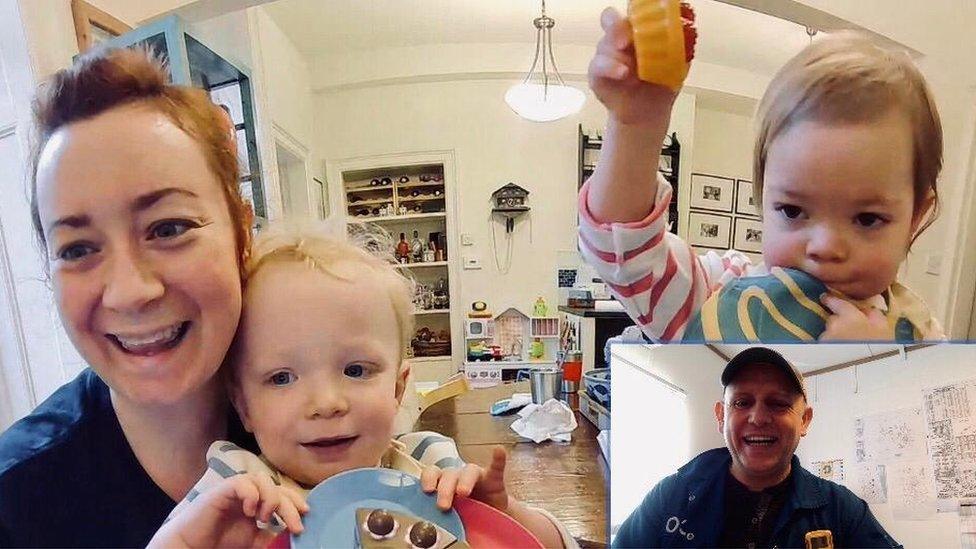
The family would videocall at breakfast daily when Eddie was having lunch
Eddie said it was "absolutely fantastic" when he was finally able to be reunited with his family.
Eddie, a logistics consultant subcontracted to work on Chevron's giant Tengiz oil field in Western Kazakhstan, flew out for a four-week run of shifts on 4 March.
But he was then unable to return home to his partner Erica, their twin toddlers and 20-year-son Alex.
Erica said: "This particular separation felt more painful than usual. It was beyond our control, full of worry and anxiety, and I had a fair amount of anger at being so vulnerable."
She said the ability to go outside for walks had been a "lifeline" while dealing with the isolation and the demands of two young children.
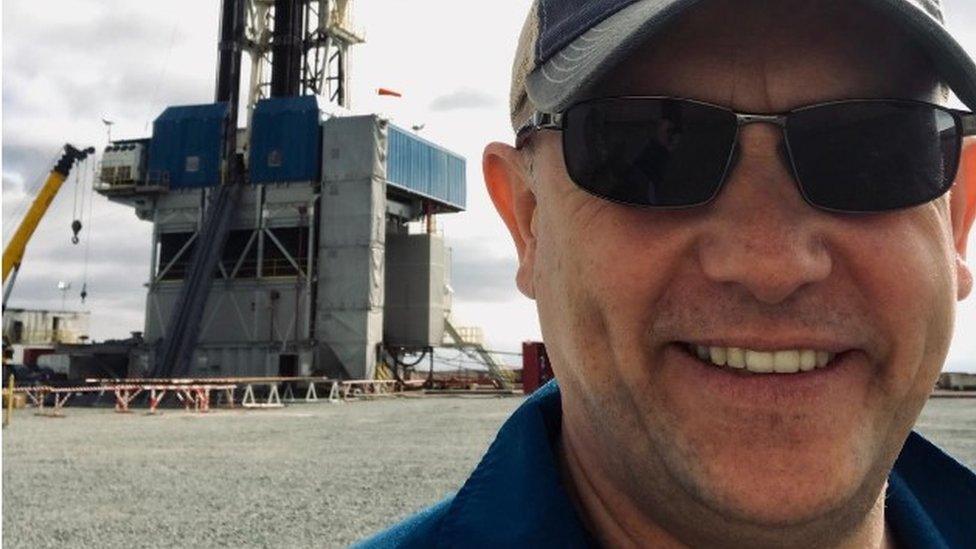
Eddie Flett was stuck in Kazakhstan
The family would videocall at breakfast daily when Eddie was having lunch in Kazakhstan, where he was stranded along with thousands of other oil workers from all over the world.
There were 300 positive cases of Covid-19 in the camp where they were staying by early May, but no deaths.
"We were busy, we didn't stop work," he said.
"The company was concerned about the virus, we were more concerned about the oil price."
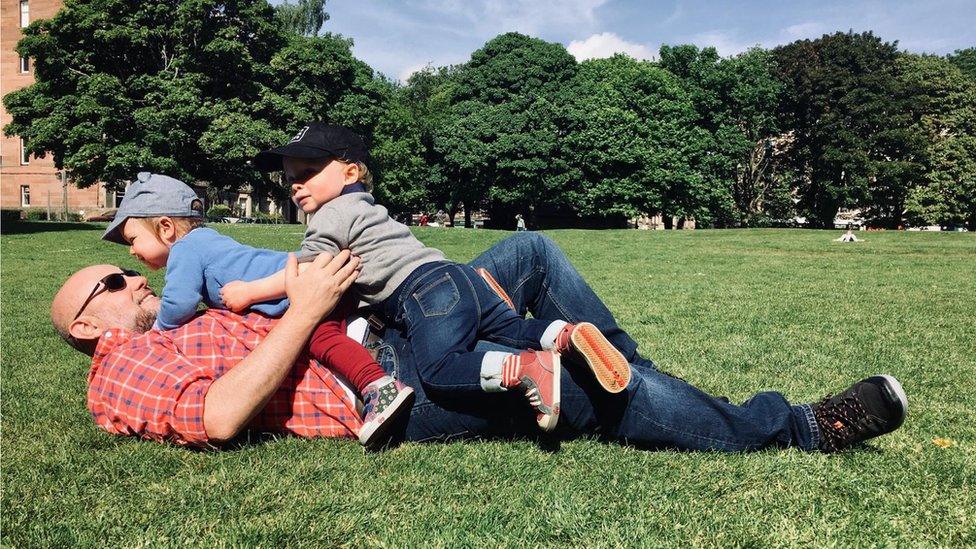
Eddie Flett has now been reunited with with his twins Isobel and Campbell
Eddie said the decision was eventually taken to shut down drilling completely and, after a couple of false starts, he set off for home on 13 May.
He was one of 20 men flown back to the UK. The long journey home involved road blocks, security checks, and coach, plane and minibus journeys - as well as a plague of mosquitos at Atyrau Airport.
When he arrived back home in Edinburgh, Eddie spent two weeks living away from his family as a precautionary measure.
He was able to live at the end of his street after neighbours lent him their vacant Airbnb flat for free.
Eddie does not know when, or if, he will be able to return to work on the oilfields again.

RISK AT WORK: How exposed is your job?
EXERCISE: What are the guidelines on getting out?
THE R NUMBER: What it means and why it matters
RECOVERY: How long does it take to get better?
